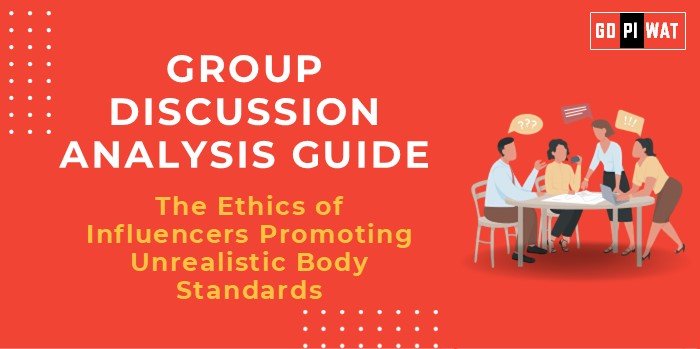📋 The Ethics of Influencers Promoting Unrealistic Body Standards
🌐 Introduction to the Topic
In the age of social media, influencers hold significant sway in shaping public perceptions of beauty and lifestyle. However, their frequent promotion of unattainable ideals has sparked debates about ethics, mental health, and societal impact. The global rise of influencer marketing underscores the urgent need for responsible content creation.
📊 Quick Facts and Key Statistics
- 🌍 Global Social Media Reach: 4.9 billion users (2023).
- 📉 Mental Health Impact: A 25% increase in anxiety and depression among teens exposed to edited content.
- 🖼️ Content Alteration: 80% of influencers admit to using editing tools to enhance their appearance.
- 📜 Regulations: Norway and France mandate disclaimers for digitally altered images in advertisements.
🔗 Stakeholders and Their Roles
- 👩🎤 Influencers: Responsible for the content they create and the ideals they propagate.
- 📱 Social Media Platforms: Gatekeepers for content moderation and transparency.
- 🧑🤝🧑 Audience: Vulnerable consumers, particularly teens and young adults.
- 🏛️ Policymakers: Advocates for ethical advertising and mental health safeguards.
🏆 Achievements and Challenges
✅ Achievements
- 💡 Awareness Campaigns: Initiatives like Dove’s Real Beauty campaign promote body positivity.
- 🔍 Transparency Tools: Instagram labels AI-generated or altered content.
- 🌍 Global Dialogues: Policy changes spurred by international advocacy efforts.
⚠️ Challenges
- 🖊️ Normalization of Edits: Edited content misleads audiences.
- 🧠 Mental Health Impacts: Increased body dysmorphia and eating disorders.
- ⚖️ Regulatory Gaps: Lack of uniform global standards for influencer content.
🌍 Global Comparisons
- 🇳🇴 Norway: Disclosures for altered images are mandatory.
- 🇬🇧 UK: ASA guidelines penalize misleading influencer content.
- 🇫🇷 France: Laws mandate disclaimers, improving transparency and trust.
💡 Structured Arguments for Discussion
- ✅ Supporting Stance: “Ethical content promotion safeguards societal well-being and restores authenticity in media.”
- ❌ Opposing Stance: “Policing content infringes on creative freedom and personal expression.”
- ⚖️ Balanced Perspective: “Ethical guidelines can coexist with creativity, ensuring mental health protection and audience trust.”
📄 Conclusion
Promoting ethical influencer practices is crucial to fostering a healthier social media landscape. Global models like those in Norway and France highlight how transparency and regulation can reduce harm while preserving creativity. A collaborative approach between influencers, platforms, and regulators is essential for meaningful change.


